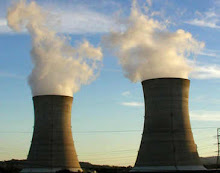
President Elect Obama’s EPA choice might be one of his most imperative decisions of the time. As our environment continues to suffer under global warming, contamination, and diminishing natural resources and our poorest communities continue to bear the burden of the most environmental toxicity, America needs an environmental leader who will confidently and efficiently confront these issues. Obama has been considering several contenders for this important position, including Kathy McGinty, Mary Nichols, Ian Bowles, Kathleen Sibelius, Lisa Jackson, and Robert F. Kennedy, Jr. All of these potential picks have experience in the environmental sector as environmental lawyers, department heads, and commissioners. The best leader, however, will be one who will address the environmental problems that affect our world on a large scale, as well as addressing the environmental problems that specifically plague the low income and minority communities. The EPA appointment must focus on the environmental justice movement as well as the broader factors of our environmental issues.
Considering Kennedy’s environmental credentials, he might be able to fulfill this role. He has much experience in environmental lawsuits, and would be able to represent the interests of those suffering from environmental injustice. He has displayed a willingness to promote Obama’s plan to establish millions of new green jobs to the different people of America, including those in low income communities. However, it is questioned whether he has the managerial skills necessary to head a department with thousands of employers and a $7.2 billion dollar budget.
Nichols undoubtedly has the necessary experience to handle the EPA’s battles, as she served as the EPA executive under Clinton and has participated in pushing for the regulation of carbon dioxide emissions, one of the most pressing issues of today. As far as clean energy is concerned, McGinty, Bowles, and Sibelius have impressive records, and any of these choices would have a focus on the large-scale task of weaning American energy dependence away from oil. But in regards to more specific concerns such as conservation and pollution control, which more directly affect those who suffer from environmental injustice, Johnson has the stronger record.
For the past years, political priorities have not been committed to environmental issues, let alone the environmental justice movement. However, with the progressive President Elect Barack Obama and his next EPA appointment leading our country towards the goals of energy independence and a clean atmosphere, we will be able to lead the global community towards environmental health as well as ensure environmental justice to those who need it.
For Further Reading:
Keim, Brandon. “Obama's Most Important Science Decision: Picking EPA Head” Retrieved from: http://blog.wired.com/wiredscience/2008/11/obamas-most-imp.html. 3 December 2008.


